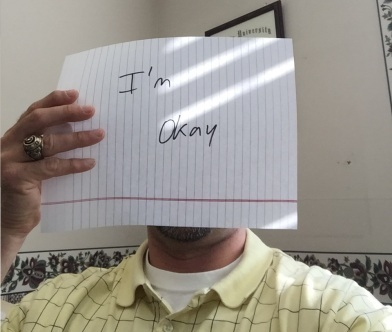I remember years ago… a friend and I went out to eat lunch. At some point in the ordering process, he made sure the lady behind the register knew he would be paying for both our meals. He beat me to it! My instant reaction was to say, “Thanks! I will pay for us next time!” Nothing seems inherently wrong with that interaction. However, there was something off with me, although I did not realize it at the time. I was having great difficulty accepting a nice gesture, like the one made by my good friend, without planning to pay it back somehow. Looking back, I was having the same problem in other areas of my life as well. Even today, I see this tendency.
It feels wrong to accept a gift without paying for it.
If I cannot, or am not allowed to, actually make payment for something given to me, I find myself wanting to find another way to earn it somehow. For instance, if my wife cooks me dinner, I might feel compelled to pay her back by cleaning up or taking out the trash. While those things are awesome things to do, my heart is in the wrong place if the acts are merely “paying her back”.
We feel weird accepting gifts from people, and God, too.
In this manner, my relationship with my Heavenly Father is not any different than my interactions with people. God says He has given me Grace, and it is not a result of anything I have done, am doing, or can do. But it just does not feel right to accept that without doing something for Him. We, Christians, often talk about how we “come as we are”, broken and full of sin, to Him and receive His forgiveness when we are saved. But long after that has occurred, I feel like I need to do something for Him, like work hard to sin less, or something. I owe Him that much, right? Also, I often feel like His Grace MUST have a credit limit or something, kind of like my credit card. At some point with all of my mistakes, I will have to do something to get the balance low enough so the card (which is me!) is not rejected.
Grace is a stumbling block.
While it did not feel right to accept my friend’s gift of a free meal, I needed to be able to accept it in order to allow our friendship to be based on love and not some messed up credit system. As odd as the title of this blog post is, it fits a real struggle many of us share. In all my hard work, striving to be as good as I can be, avoiding what I perceive as failure, striving to “love others”, and in doing all that other important stuff we know Jesus talked about, something always gets in my way. Something always trips me up. For a long time, I thought it was all me. I just could not get it right, so I kept tripping over myself. That’s not entirely true, though. What I keep tripping over is actually…Grace. God has placed Himself squarely in my way when I go down the “striving to earn my way” path because He knows I need to be tripped. It’s an exhausting path to endless struggle. That path must be interrupted so I will look up and see who tripped me. Although it often flies against everything that feels right, I need His Grace, not just good behavior like it’s some form of “payment”. And He does not need me to produce those things for Him either. He’d much rather have a relationship than a business arrangement. All I truly need, and what He truly desires, is for me to embrace His Grace…and all the wonderful, free gifts that are a part of a trusting relationship with Him.
What shall we say, then? That Gentiles who did not pursue righteousness have attained it, that is, a righteousness that is by faith; but that Israel who pursued a law that would lead to righteousness did not succeed in reaching that law. Why? Because they did not pursue it by faith, but as if it were based on works. They have stumbled over the stumbling stone, as it is written, “Behold, I am laying in Zion a stone of stumbling, and a rock of offense; and whoever believes in him will not be put to shame.” (Romans 9:30-33, ESV)











